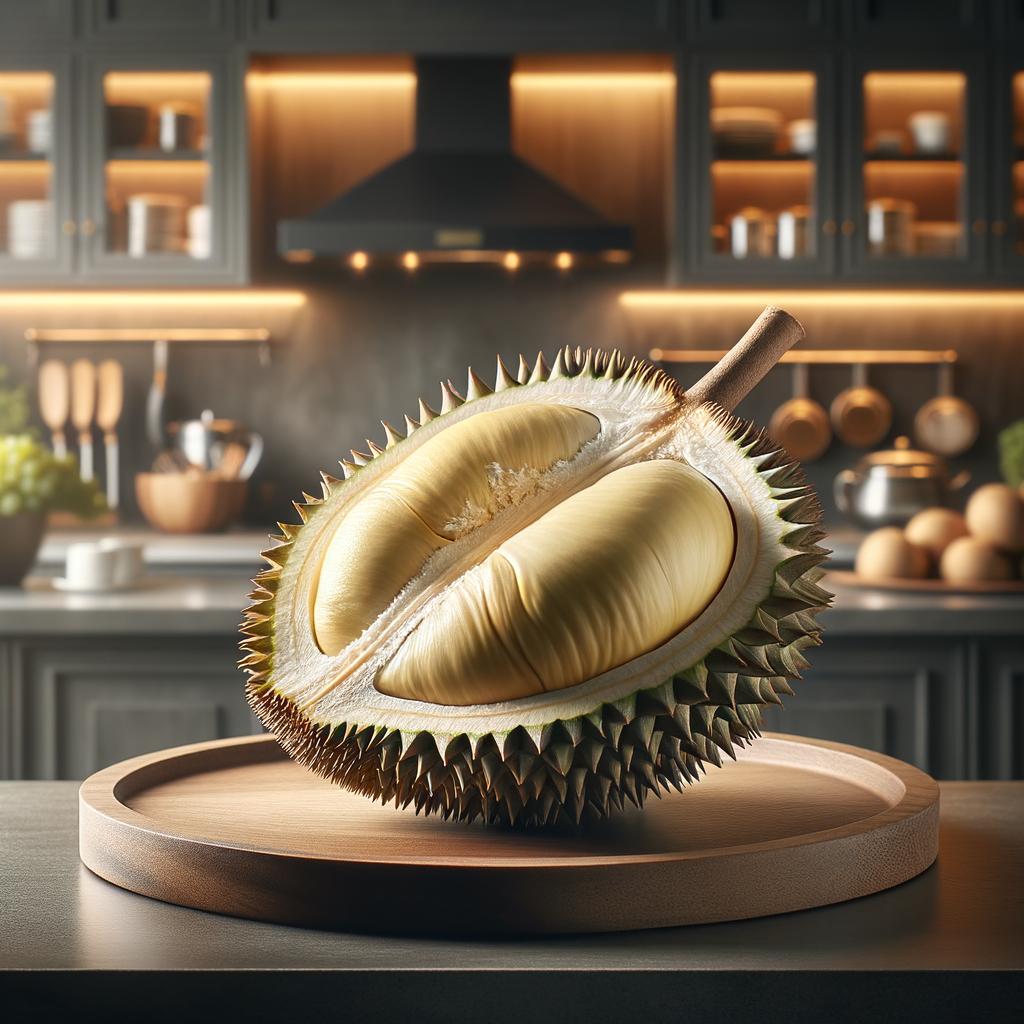Durian Flesh

Description
Our ingredient of the day is the infamous Durian flesh, an exotic delicacy known as the "King of Fruits" in Southeast Asia. At first glance, the Durian might seem intimidating with its large, spiky exterior. However, the treasure lies within – the custard-like flesh that is unique in the fruit kingdom. The flesh, a rich, buttery yellow, is soft, creamy, and envelops the senses with its distinct aroma. The flavor profile is a complex blend of sweet, savory, and a hint of bitterness. The taste has been compared to a rich almond custard with notes of caramel and garlic. What truly sets Durian apart is its potent smell, which can be divisive – a fragrance that people either love or loathe.
Primary Uses
Durian flesh is used in a wide variety of culinary applications. In Southeast Asian cuisines, it's often used in sweet dishes like pastries, cakes, ice creams, and candies. In savory dishes, it's cooked with rice or used in soups. The flesh can also be eaten fresh, straight from the fruit. Beyond its culinary uses, Durian is also used in traditional medicine in some Asian cultures, believed to help lower blood pressure and improve skin health.
History
The Durian has a rich history that dates back hundreds of years. Originating from the rainforests of Borneo and Sumatra, the Durian was considered a luxury fruit by ancient kingdoms in Southeast Asia. Its unique taste and smell have inspired many stories and legends. One folklore tale suggests that the Durian was created by the gods themselves, who mixed the flavors of all other fruits to create this one extraordinary fruit. Over time, the Durian has grown in popularity, and despite its controversial smell, it has found a place in the global culinary scene.
Nutritional Information
Durian flesh is not only delicious but also packed with nutritional benefits. It's an excellent source of energy, dietary fiber, vitamin C, and several important minerals like potassium, iron, and copper. It also contains a significant amount of thiamin, a B-vitamin that supports carbohydrate metabolism. Despite its high nutritional value, Durian is also high in sugars and fats, so it should be consumed in moderation. Compared to other fruits, Durian has a higher caloric content and provides more macronutrients, making it a filling and satisfying treat.

